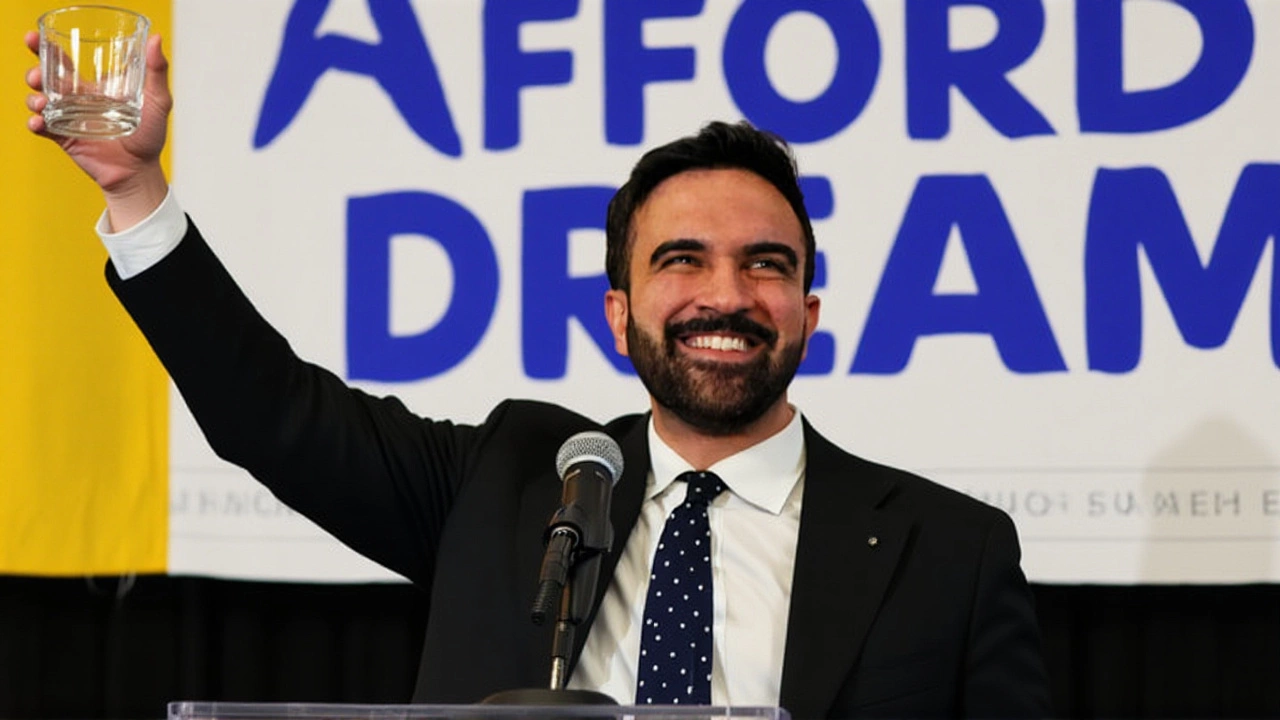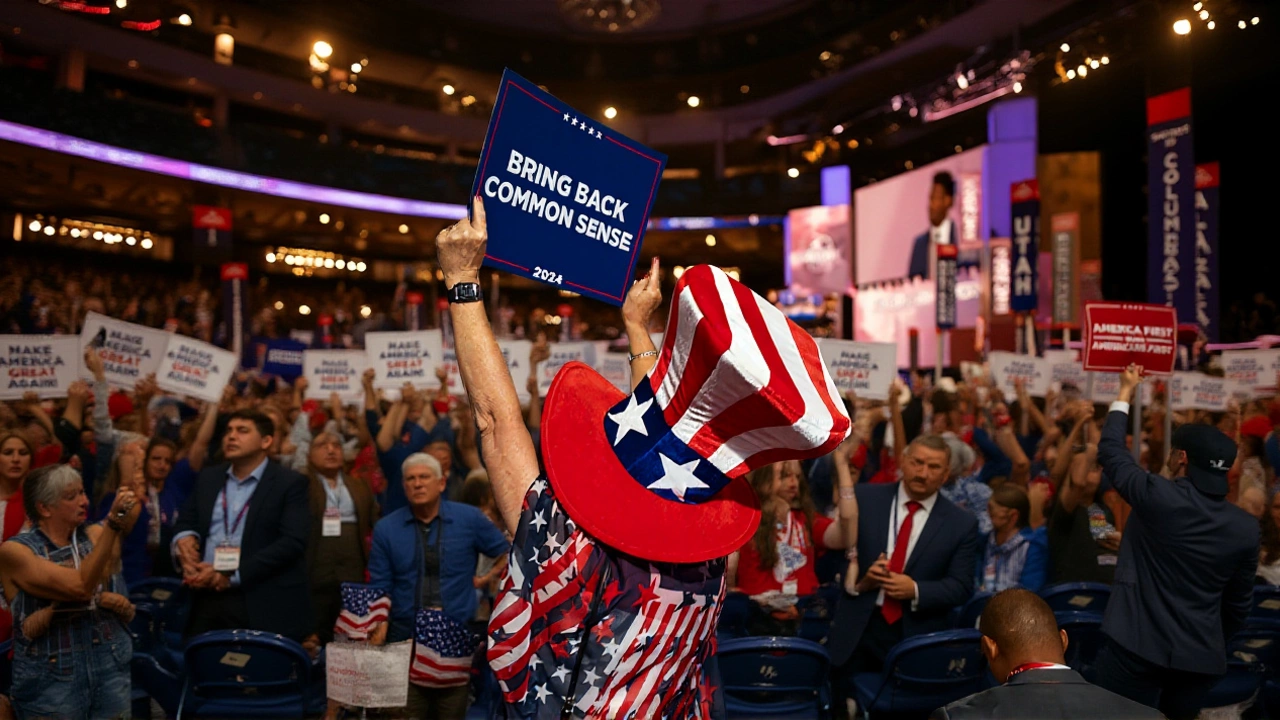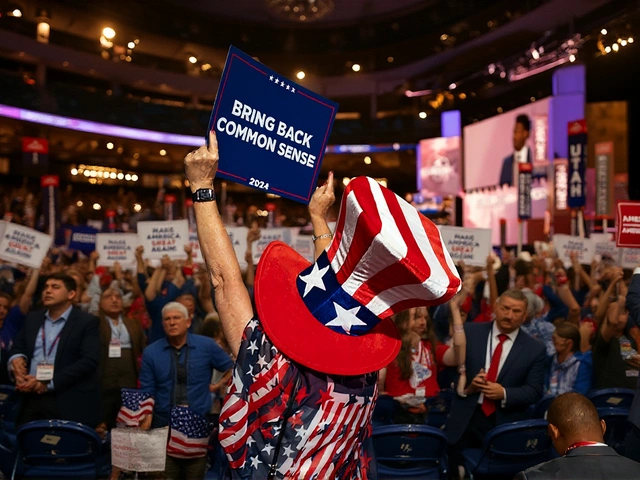When Peter Giunta, former president of the New York State Young Republicans Club and chief of staff to Mike Reilly, became the centerpiece of a scandal that rocked the party, the shockwaves were immediate.
The scandal erupted after Politico published more than 2,900 pages of private Telegram chats on October 15, 2025. The chats, spanning January through mid‑August 2025, contained over 28,000 messages drenched in racist messages, antisemitic slurs, violent threats and outright praise for Adolf Hitler.
Background: The Young Republican Network
The Young Republican National Federation (YRNF) has long been a pipeline for aspiring GOP officials, grooming members for congressional campaigns, staff committees and elected office. State chapters in New York, Kansas, Arizona and Vermont operate semi‑autonomously, yet they share a national leadership council that meets virtually.
In recent months, the federation was quietly planning a "reactivation" after a lull in activity. That effort now appears derailed, as internal documents leaked to the press reveal a culture of hostility that contradicts the organization’s public mantra of "leadership for the next generation."
Leak Details: What the Chats Revealed
The telegram archive shows a disturbing pattern. Alex Dwyer, chair of the Kansas Young Republicans, replied to a colleague’s comment with “Great. I love Hitler,” and later posted the numeric code “1488,” a well‑known white‑supremacist shorthand linked to Adolf Hitler.
Vice chair William Hendrix, who also worked for the office of Kansas Attorney General Kris Kobach, used the N‑word more than a dozen times, including a taunt about a Black patron’s meal: “Would he like some watermelon and Kool‑Aid with that?”
In New York, Giunta’s remarks were equally vile. During an NBA playoff broadcast he wrote, “I’d go to the zoo if I wanted to watch monkey play ball.” Later, in a June 2025 exchange, he warned, “Everyone that votes no is going to the gas chamber.” When General Counsel Joe Maligno tried to deflect, he replied, “Can we fix the showers? Gas chambers don’t fit the Hitler aesthetic,” while fellow member Annie Kaykaty added, “I’m ready to watch people burn now.”
Only one chat participant, senior adviser Michael Bartels of the U.S. Small Business Administration, was confirmed to be serving in the Trump administration at the time of the leak. He offered no pushback to the vile discourse.
Immediate Reactions from Party Leaders
State GOP officials moved quickly. On October 14, 2025, Kris Kobach announced that Hendrix’s employment was terminated "as soon as the office learned of those messages." The next day, Mike Reilly fired Giunta on the spot.
The national Young Republican National Federation issued a terse statement on X (formerly Twitter) condemning the language as "vile and inexcusable" and calling for immediate resignations of anyone involved.
Meanwhile, the Kansas State GOP—represented by its executive committee—voted on October 15 to disband the Kansas Young Republicans chapter entirely, a rare move that underscores the severity of the fallout.
Vice President JD Vance attempted to distance himself, posting, “I refuse to join the pearl clutching,” a comment that many interpreted as dismissive of the broader outrage.
Organizational Fallout: Who’s Out, Who’s Still In?
Beyond the immediate firings, several pending elections were thrown into chaos. Giunta had been running for chair of the YRNF when the scandal broke, effectively ending his bid.
Other state chapter leaders—most notably in Arizona and Vermont—have announced internal reviews, but no formal resignations have been confirmed yet.
Political analysts note that the leak may stall the YRNF’s planned reactivation, a project that had attracted fundraising interest from several conservative donors.

Wider Political Implications
The revelations arrive at a time when the GOP is already wrestling with internal battles over its identity. Far‑right elements have long been accused of infiltrating youth wings, but this is the first time such explicit glorification of Hitler has been documented in a major party organization.
Experts from the Wilson Center argue that the scandal could fuel upcoming primary battles, especially in swing states where Republican candidates may need to distance themselves from extremist rhetoric to remain viable.
For the broader public, the leak reignites debates about online political discourse, the responsibility of party leadership to police private communications, and whether platform providers should be compelled to hand over encrypted chat data.
What’s Next? Ongoing Investigations and Possible Legislation
Both New York and Kansas attorneys general have opened formal investigations into whether any state funds were used to support the offending members. A bipartisan group of legislators in the U.S. House is also drafting a resolution that would require all federally funded political organizations to adopt stricter anti‑hate‑speech codes.
Meanwhile, the YRNF has pledged a full audit of its membership and promised “zero tolerance” for extremist language, though critics argue that enforcement will be challenging without external oversight.
As the fallout continues, the question for voters is whether these revelations will reshape the GOP’s youth pipeline or simply become another footnote in an ongoing cultural war.
Frequently Asked Questions
How will the scandal affect the Young Republican National Federation’s future?
The federation’s planned “reactivation” is on hold as donors and state GOPs reassess support. An internal audit slated for November aims to purge members who participated in the chats, but without external enforcement the long‑term credibility of the group remains uncertain.
What legal consequences could the participants face?
State attorneys general in New York and Kansas are reviewing possible violations of anti‑discrimination statutes and misuse of public funds. So far, only employment termination has occurred, but criminal charges are unlikely unless evidence of coordinated hate‑crime planning emerges.
Did any federal officials directly endorse the hateful messages?
No federal officeholder was found to have explicitly endorsed the content. However, Michael Bartels, a senior adviser in the Small Business Administration, was present in the chats and offered no dissent, raising questions about tolerance of extremist language within the administration.
Will the Kansas State GOP’s disbanding of its youth chapter set a precedent?
The decision is unprecedented and could inspire other state parties to take similar action if investigations uncover deeper systemic issues. Political scientists note it may become a model for swift internal accountability within party structures.
How have Republican voters responded to the leak?
Polls conducted by the Pew Research Center in early October show a split: about 38% of Republican identifiers expressed disappointment and called for resignations, while 27% dismissed the chats as private jokes, indicating a lingering divide over the party’s cultural direction.






